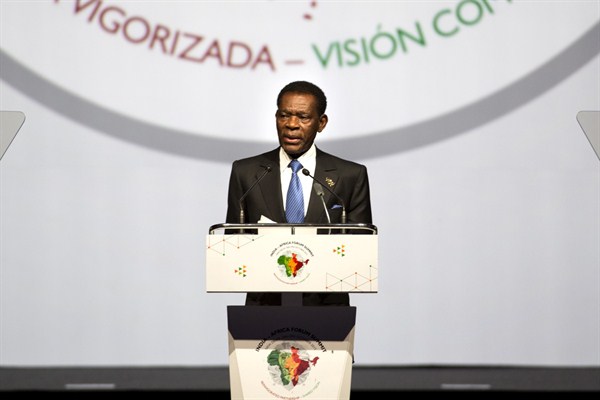Editor’s Note: Every Friday, Associate Editor Robbie Corey-Boulet curates the top news and analysis from and about the African continent.
In March 2007, a group of NGOs filed a complaint in France against the ruling families of a handful of African countries, alleging that property and other assets they owned in France were obtained via corruption. A decade of legal wrangling later, the first trial in the so-called “biens mal acquis,” or ill-gotten gains, affair is now in full swing, with hearings unfolding in Paris in the case of Teodoro Nguema Obiang Mangue, the vice president of oil-rich Equatorial Guinea and son of the country’s long-serving dictator.
The trial has already offered its share of fireworks. This week, Simon Mann, a British mercenary who led a failed coup in Equatorial Guinea in 2004, testified—without offering any proof—that U.S. billionaire George Soros once plotted to overthrow the Obiang regime. Mann also said Transparency International lawyer William Bourdon was part of the scheme, prompting Bourdon to retort that Mann “had plumbed the depths of filth.”

